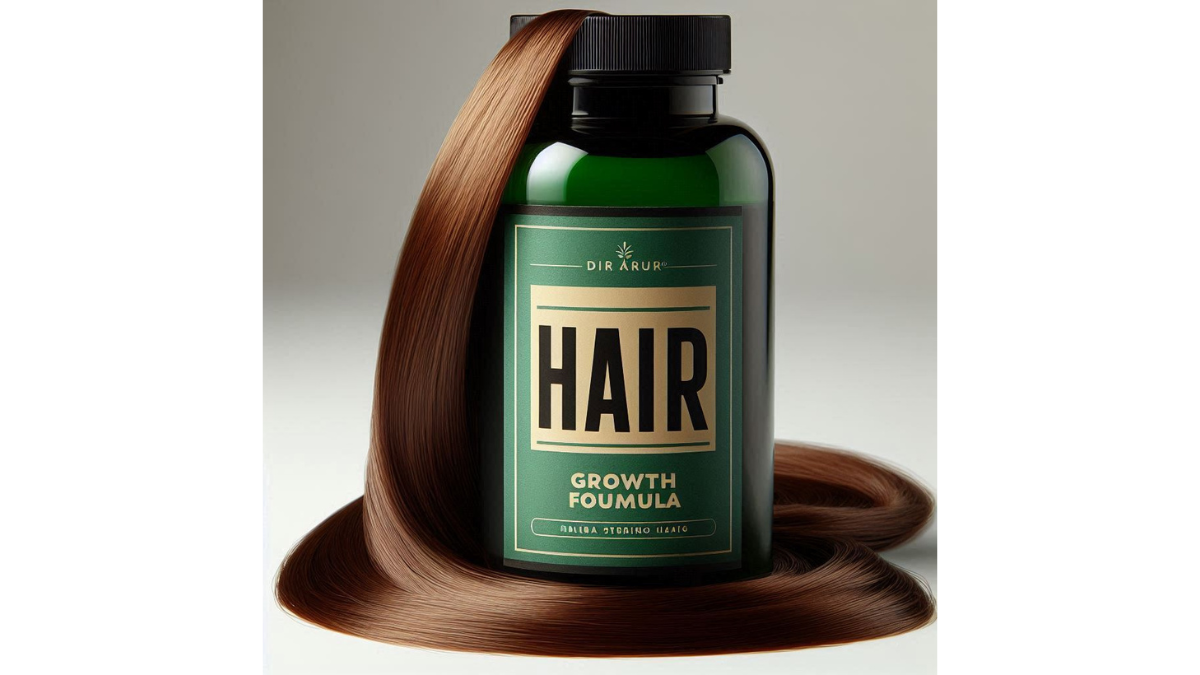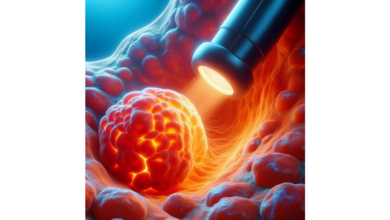Discover the Best Vitamin for Hair Loss

Discover the Best Vitamin for Hair Loss – In today’s world, hair loss is a common concern for many individuals, transcending age, gender, and background. Whether you’ve noticed a few more strands on your pillow or your hairline has begun to recede, it’s vital to understand that you are not alone on this journey. Many are seeking solutions to fight hair loss and restore their locks’ fullness and vibrancy. As someone who has navigated the challenges of thinning hair, I can relate deeply to the feelings of frustration and confusion that often accompany this issue. One moment you’re flipping through your favorite magazine admiring luscious hair, and the next, you’re staring at your reflection wondering where it all went wrong. However, it’s essential to recognize that hair loss isn’t merely an aesthetic issue; it often signals underlying health concerns.
Why Understanding Hair Loss Matters
To actively combat hair loss, knowledge is power. By understanding the various causes and the essential vitamins that contribute to healthy hair growth, you can take the first proactive steps towards transformation. Here are a few crucial aspects to consider:
- Your Unique Journey: Each individual experiences hair loss differently. For some, it may be gradual, while for others, it can be sudden and severe. Identifying your specific situation helps in determining the appropriate solutions.
- Holistic Approaches: In my experience, remedies often extend beyond topical solutions. A holistic approach that includes diet, lifestyle, and overall health is key. This means nourishing your body with the right nutrients and consulting healthcare professionals who can offer tailored guidance.
- Emotional Impact: Hair plays a significant role in our self-image. As I navigated my hair loss journey, I realized that emotional wellness is intrinsically linked to physical well-being. Addressing the emotional toll of hair loss is just as important as finding the right treatments.
In this blog, you’ll discover the best vitamins for hair loss and learn how they can support your hair growth journey. We’ll explore the most common causes of hair loss, the vitamins that promote healthy growth, and the lifestyle changes you can implement to achieve thicker, fuller hair. Stay with us, as this journey is not just about restoring your hair but also enhancing your overall quality of life.
Understanding Hair Loss
As we delve deeper into the topic of hair loss, it’s crucial to grasp what it truly entails. Hair loss can manifest in various forms, influencing not just your appearance but also your confidence and overall well-being. Understanding the process of hair loss is the first step toward addressing it effectively.
The Hair Growth Cycle
Before exploring the causes, it’s important to understand how hair grows and sheds. Hair undergoes a cycle that includes three key phases:
- Anagen Phase: This is the growth phase, lasting several years. About 85-90% of your hair is in this stage at any given time.
- Catagen Phase: The transition stage lasts a few weeks. Here, hair growth slows down and detaches from the hair follicle.
- Telogen Phase: This is the resting phase, lasting around three months, where hair falls out to make way for new growth.
Naturally, losing 50 to 100 strands of hair daily is normal, but when you start to notice unusual thinning or bald spots, it’s a sign to look deeper.
Different Types of Hair Loss
Hair loss is not one-size-fits-all; it comes in various forms. Here are some common types:
- Androgenetic Alopecia: Also known as male or female pattern baldness, this is the most common form and is often hereditary. It usually starts gradually and can be more pronounced on the crown of the head.
- Alopecia Areata: This autoimmune condition can cause patchy hair loss. Individuals may find themselves with one or several bald patches, which can resolve on their own or require treatment.
- Telogen Effluvium: This type occurs due to a stressful event, such as pregnancy, illness, or drastic weight loss, triggering a significant amount of hair to enter the resting phase simultaneously.
Why is Understanding Important?
Arming yourself with knowledge about hair loss empowers you to make informed decisions about treatment options.
- Informed Choices: Recognizing the type of hair loss you are experiencing allows for more targeted solutions.
- Mind-Body Connection: Understanding how stress or hormonal changes affect your hair can help you address these underlying issues proactively.
In my own journey, uncovering these aspects significantly influenced how I approached remedies and lifestyle changes. I learned that understanding hair loss was just as important as any supplement or treatment. As you progress with us, you’ll build a roadmap to reclaim your hair’s health confidently and effectively.
Common Causes of Hair Loss
As we continue our journey to understanding hair loss, it’s essential to identify the common causes that might be contributing to your struggle. Knowledge of these factors not only empowers you but helps in addressing the root issues effectively. The most prevalent causes include genetics and hormonal imbalance.
Genetics
One of the most significant contributors to hair loss is genetics. Often referred to as androgenetic alopecia, this hereditary condition affects both men and women. I vividly recall my discussions with my family about hair loss; it seemed like a rite of passage through the generations. Observing various family members, I started piecing together how genetics played a crucial role in my own hair journey.
- Family History: If you had relatives, particularly parents or grandparents, who faced hair thinning or balding, you might be more predisposed to experience the same.
- Pattern Recognition: Male pattern baldness usually presents as a receding hairline or thinning at the crown, while female pattern hair loss often manifests as a widening part or overall thinning.
Recognizing that genetics plays a pivotal role helped me understand that I was not alone and that embracing it was part of the process.
Hormonal Imbalance
Hormonal fluctuations are another common cause of hair loss that can affect individuals at any stage of life. Changes in hormones can stem from various factors, including pregnancy, menopause, stress, and underlying health conditions.
- Women’s Health: Many women experience hair loss during or after pregnancy and menopause due to a drop in estrogen and progesterone levels. I remember my friend going through postpartum hair loss—it was both surprising and distressing for her, but it was a natural response to the hormones changing in her body.
- Thyroid Issues: An underactive or overactive thyroid can also lead to hair loss. This is more common than many realize and can require medical intervention to manage hormone levels effectively.
- Stress and Cortisol: Elevated stress levels can trigger hormonal imbalances that potentially lead to telogen effluvium, where significant amounts of hair shed following stress-inducing events.
To navigate your hair loss journey, understanding these common causes is vital. By identifying whether your hair loss is genetic or hormonally driven, you can take appropriate actions to mitigate its effects. This knowledge, coupled with a tailored approach in seeking support and treatment, can significantly enhance your results. As we explore further, you’ll discover actionable steps to address these concerns effectively.
Importance of Vitamins for Hair Growth
Having explored the common causes of hair loss, it’s time to shift our focus to a vital aspect in the quest for thicker, healthier hair: vitamins. Vitamins are essential nutrients that play a significant role in numerous bodily functions, including hair growth. Incorporating the right vitamins into your diet can pave the way for revitalized tresses that stimulate confidence. Let’s delve into two powerhouse vitamins important for hair health: Vitamin A and Biotin.
Vitamin A
Vitamin A is often touted as a miracle nutrient for hair growth, and for good reason. It’s crucial for several functions, including cell growth and maintaining healthy skin, which in turn promotes a healthy scalp—an essential foundation for hair growth.
- Retinol Benefits: This essential vitamin encourages the production of sebum, the natural oil produced by our scalp. Having the right amount of sebum can prevent dryness and keep hair moisturized and vibrant.
- Sources of Vitamin A: You can find this vitamin in various foods, such as:
- Carrots
- Sweet potatoes
- Spinach
- Kale
- Dairy products like milk and cheese
Reflecting on my own experience, I began to notice a difference when I incorporated more leafy greens and colorful vegetables into my meals. Not only did my hair seem healthier, but my overall energy levels improved!
Biotin
Biotin—a B vitamin—has gained a reputation as one of the best vitamins for hair growth. This water-soluble vitamin plays a crucial role in converting nutrients into energy, which is imperative for hair production.
- Key Benefits: Biotin supports keratin production, a protein that forms the very structure of hair. Deficiency in biotin can lead to hair thinning and brittle strands.
- How to Boost Your Biotin: Apart from supplements, you can achieve adequate biotin levels through:
- Eggs (a wonderful source!)
- Nuts such as almonds and walnuts
- Whole grains
- Bananas
When I started considering biotin supplements, I was initially skeptical, but the positive impact on my hair strength was undeniable. My strands became much less prone to breakage, which was a great relief. Incorporating vitamins like Vitamin A and Biotin into your routine can drastically enhance your hair growth journey. By focusing on nutrition and ensuring you provide your body with the necessary nutrients, you’re not just caring for your hair—you’re investing in your overall wellness. As we proceed, we will discover more essential vitamins and supplements tailored to combat hair loss effectively.
Best Vitamin Supplements for Hair Loss
Continuing from our discussion on essential vitamins, it’s time to focus on some of the best vitamin supplements specifically targeting hair loss. Two critical nutrients that can significantly influence hair growth and health are Vitamin D and Iron. Understanding their roles can help you make informed decisions about adding them to your regimen.
Vitamin D
Vitamin D often takes a backseat when discussing hair health, but it is increasingly recognized as a key player in promoting healthy hair follicles.
- How It Works: Vitamin D supports the creation of new hair follicles, the tiny pores in the scalp where new hair can grow. To encourage this process, ensuring adequate levels of Vitamin D is essential.
- Sources of Vitamin D: While sunlight is a primary source, you can also find Vitamin D in:
- Fatty fish, such as salmon and mackerel
- Cod liver oil
- Fortified foods like milk and some cereals
- Egg yolks
During one particularly gloomy winter, I found myself feeling more sluggish and noticed my hair thinning even more. After discussing my concerns with a healthcare professional, I realized my Vitamin D levels were low and began incorporating supplements and more Vitamin D-rich foods into my diet. Within weeks, I felt more energized and noticed improvements in my hair health!
Iron
Iron deficiency is one of the most common nutritional deficiencies worldwide, often leading to hair loss, especially in women. Iron is essential for carrying oxygen to hair follicles, promoting healthy hair growth.
- Role of Iron: Without adequate iron, hair can become weak, and growth may slow. Anemia, caused by iron deficiency, can lead to significant hair shedding, so it’s vital to keep your iron levels in check.
- Iron-Rich Foods: Incorporating iron into your diet can be achieved through:
- Red meat and poultry
- Legumes, such as beans and lentils
- Dark leafy greens, like spinach
- Fortified cereals
When I experienced noticeable hair loss, I learned that my iron levels were subpar. After enhancing my diet with iron-rich foods and considering supplements, I started seeing improvements in both my hair and my energy levels. In wrapping up this discussion on Vitamin D and Iron, it’s essential to understand that addressing hair loss is a multifaceted journey. By considering these vital nutrients as part of your supplementation strategy, you can significantly enhance your chances for healthier hair. As we delve deeper, you will also explore lifestyle changes that can complement your supplement efforts for even better results.
Diet and Lifestyle Changes for Thicker Hair
Now that we’ve covered essential vitamins and supplements for hair growth, it’s time to explore the powerful impact that diet and lifestyle changes can have on achieving thicker hair. Adopting a holistic approach can truly make all the difference on your hair journey. Here’s how you can enhance your hair health from the inside out.
Dietary Enhancements
What you eat plays a crucial role in the health of your hair. Here are some dietary changes that can help promote thicker and stronger hair:
- Embrace Whole Foods: Focus on a balanced diet rich in whole foods—think colorful fruits and vegetables, lean proteins, whole grains, and healthy fats.
- Increase Protein Intake: Hair is made primarily of protein, so incorporating enough protein is essential. Foods such as:
- Eggs
- Greek yogurt
- Chicken and turkey
- Legumes and nuts
- Healthy Fats are Your Friends: Healthy fats, especially omega-3 fatty acids found in fish, flaxseeds, and walnuts, can nourish the scalp and promote hair growth. When I introduced more fatty fish like salmon into my diet, I noticed my hair felt softer and shinier.
Hydration is Key
Staying hydrated is crucial for overall health, including your hair. Water helps to transport nutrients to your hair follicles and maintain moisture levels.
- Aim for Adequate Water Intake: I found that setting a daily water goal helped me stay on track. Try to drink at least 8-10 glasses a day. You can enhance hydration with herbal teas and water-rich foods like cucumbers and watermelon.
Lifestyle Adjustments
While diet plays a significant role, lifestyle changes also contribute to the health of your hair:
- Stress Management: High-stress levels can trigger hair loss. Consider activities that help you unwind, whether it’s yoga, meditation, or journaling. I’ve personally found that regular yoga practice not only reduces stress but also promotes a sense of well-being.
- Gentle Hair Care Practices: Avoid harsh treatments and limit the use of heat styling tools. When I started using a wide-tooth comb instead of a brush and switched to gentler hair products, I noticed less breakage and stronger strands.
- Prioritize Sleep: Quality sleep is crucial for overall health, including your hair. Aim for 7-9 hours of uninterrupted sleep each night to allow your body to repair and rejuvenate.
Incorporating these dietary enhancements and lifestyle changes can create a solid foundation for achieving thicker and healthier hair. It’s about nourishing your body holistically and providing your hair with the support it needs. As you embark on this journey, remember that patience is key; significant improvements can take time, but the results are certainly worth the wait.
Consultation with a Healthcare Professional
Having discussed the various dietary and lifestyle changes that can contribute to thicker hair, it’s important to emphasize an equally crucial aspect of any hair care journey: consulting with a healthcare professional. Seeking professional advice can provide you with personalized insights and effective strategies tailored to your specific needs.
Why You Should Consult a Professional
Many people often wait too long before reaching out to a healthcare provider regarding their hair loss concerns. I can empathize with this hesitation; I once felt unsure whether my situation warranted a doctor’s visit. However, seeking professional guidance can be a game-changer, enabling you to address any underlying issues effectively.
- Expert Assessment: A healthcare professional can evaluate your overall health and hair loss condition by examining factors such as family history, hormonal imbalances, and deficiencies in nutrients. When I finally consulted a dermatologist about my thinning hair, they performed a comprehensive assessment that shed light on the nutrient gaps I hadn’t previously considered.
- Personalized Treatment Plans: Depending on your diagnosis, healthcare providers can tailor solutions specifically for you. This could range from recommending the right supplements to suggesting treatments like topical minoxidil or even referring you to a trichologist (a specialist in hair and scalp health).
Tests and Diagnosis
Your consultation may include specific tests to identify the root cause of your hair loss. Some common approaches include:
- Blood Tests: These are conducted to evaluate nutritional deficiencies (like iron and Vitamin D), hormonal levels, and thyroid function. Identifying these deficiencies is crucial, as I discovered during my own tests; the results guided my dietary changes and supplement plans.
- Scalp Examination: Professionals may examine your scalp using specialized tools to assess hair growth patterns and follicle health. This examination can be insightful in determining the best course of action.
When to Seek Help
It’s essential to recognize when it’s time to reach out to a healthcare professional. Here are some signs that indicate you should seek help:
- Sudden Hair Loss: If you experience sudden patches of hair loss or significant shedding.
- Persistent Thinning: Noticeable thinning that doesn’t seem to improve despite changes in diet and hair care routines.
- Scalp Issues: Issues like itching, redness, or flaking can indicate underlying problems that need attention.
In conclusion, while making dietary and lifestyle changes is significant, consulting a healthcare professional remains an indispensable step in understanding and addressing your hair loss effectively. With their expertise, you can gain clarity, receive appropriate care, and feel more empowered on your journey to thicker, healthier hair. Remember, progress takes time and patience, but you don’t have to face this journey alone.
Conclusion
As we wrap up our exploration of hair loss and its potential solutions, it’s essential to reflect on the key points we’ve discussed throughout this journey. From understanding the factors that affect hair health to incorporating the right vitamins, lifestyle changes, and professional guidance, you are now equipped with a comprehensive approach to achieving thicker, healthier hair.
Key Takeaways
In this journey, you’ve learned valuable information, including:
- Understanding Hair Loss: Recognizing the influence of genetics and hormonal imbalances sets the stage for addressing the problem head-on.
- Vital Vitamins for Hair Growth: Integrating vitamins like Vitamin A, Biotin, Vitamin D, and Iron into your diet can provide your hair with the nutrients it desperately needs.
- Diet and Lifestyle Impact: Making simple yet impactful changes in your diet, hydration, and stress management can significantly enhance hair health. I can personally attest to how incorporating more whole foods and adopting self-care practices like yoga has transformed my hair’s vitality.
The Importance of Professional Guidance
Never underestimate the power of professional insight. Whether it’s a dermatologist, nutritionist, or trichologist, having expert support can provide the clarity and tailored strategies needed to navigate your unique situation. They can help identify underlying issues that may be contributing to hair loss, leading to more effective treatment options. Reflecting on my experiences, reaching out to a healthcare professional opened doors to solutions I had never considered, giving me a sense of relief and direction.
Embrace Your Journey
As you embark on your hair health journey, remember that progress takes time. Mood fluctuations, seasonal changes, or life’s pressures can all affect your hair health. Be patient and gentle with yourself, and celebrate small victories along the way. Here’s a quick reminder to keep in mind:
- Stay Consistent: Whether it’s adding vitamins, changing your diet, or managing stress, consistency is key.
- Manage Expectations: Hair growth is a gradual process. It’s essential to set realistic goals and give your body time to respond.
- Document Your Journey: Keep a journal of your experiences, noting what works and how you feel. This can be incredibly validating and informative moving forward.
In conclusion, tackling hair loss is a multifaceted journey, but with informed decisions, professional guidance, and a commitment to self-care, you can certainly turn the tide. Here’s to embracing your beautiful hair journey, and together, let’s reclaim those luscious locks one step at a time!
You might also find this article helpful Bone Health: Building Strong Bones





